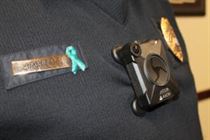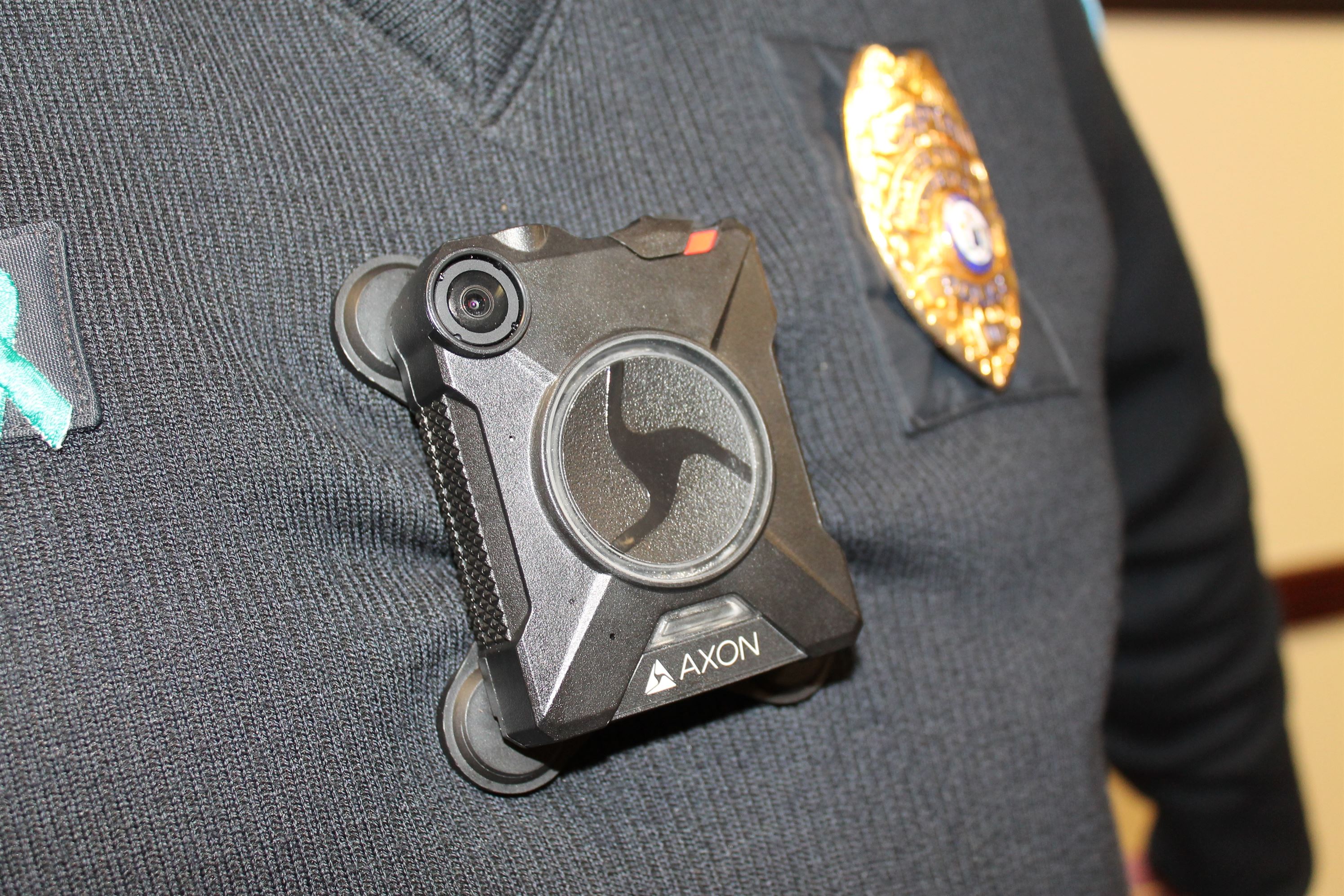All Montclair State University Police Department (UPD) officers will be required to have a body camera on their uniform when reporting for duty starting on March 1.
“The new practice follows several years of product and operations research and months of intensive officer training,” said Media Relations Director Erika Bleiberg, in the official press release. “University Police will fully deploy the [body-worn cameras] to all 40 of its officers for use when they are on routine patrol or dispatched on calls for service.”
According to Capt. Kieran Barrett of the UPD, there are other universities in the state that currently have body cameras.
“There are other campus agencies that have them in the state of New Jersey, such as Rutgers, Kean University and a few others that are south of us,” Barrett said. “Not everyone has [them] across the United States, and in New Jersey, but we definitely do have them here in the state of New Jersey, so it isn’t unusual at all.”

Capt. Kieran Barrett of the University Police Department poses with the newly implemented body cameras set to launch on March 1.
Heather Berzak | The Montclarion
In Bleiberg’s press release, University Police Chief Paul Cell emphasized the police department’s effort to maintain transparency and an open relationship with the campus community with body cameras being a key asset in assisting that goal.
Justice studies professor Jon Zawacki believes body cameras will be a good asset for the police department to have when addressing how their officers handle situations.
“I think it gives the naysayers, even the judges, even the prosecutors, even the defense attorneys [the ability to say], ‘Hey, look what kind of job [the police are] doing? Look, it’s on camera’,” Zawacki said. “On the other hand, there’s that small percentage [of officers] that abuse their authority, and what happens is, they don’t belong there anyway.”
Contrarily, Zawacki mentioned there may be some consequences to the body cameras being implemented.
“My only fear would be the public would be afraid to call [the police] thinking [the footage] is going to be on the evening news on TV,” Zawacki said. “But, when you put everything on the scales of justice, I think [they’re] a good thing.”
When dealing with body cameras, the UPD is aware of the privacy issues that could come into question. According to Barrett, the body camera is only turned on under certain circumstances.

A body camera is strapped to the chest of Capt. Kieran Barrett of the University Police Department.
Heather Berzak | The Montclarion
“For incidents such as medicals, such as motor vehicle accidents, crimes that are occurring and crimes that are reported to us and those are all calls for service and are all within the realm of being recorded,” Barrett said. “This is where people live, this is where people work, so it’s not something where we’re surreptitiously recording people and just saying, ‘I’d like to record this person.’ It has to be for a specific incident and those are set forth in guidelines and training as well.”
Following guidelines established by the New Jersey Attorney General, the department developed a policy document that explains protocols on when and how police officers can use the cameras. There’s a tab on frequently asked questions regarding body cameras on the university’s website under the campus police’s page.
Undeclared freshman Max Bastos believes body cameras on officers will eliminate the need to second guess the details of an incident.
“I think body cameras on police officers are a good thing because it will take away any doubts about what happened in a certain time or place,” Bastos said.
On Sept. 6 of 2018, a viral video surfaced of campus police officers making arrests on several students near the Village Apartments. With the protocol they followed, many students questioned if the officers were too forceful in their actions.
According to Barrett, that incident did not play a role in the university’s decision to invest in body cameras.
“That incident did not precipitate the buying of cameras, the decision to move forward with cameras [or] speed up the process,” Barrett said. “But I can recognize why some people would say, ‘Oh, you had this incident, now all of a sudden you’re getting cameras.’”

A still shot from the police body camera of Capt. Barrett shows The Montclarion’s News Editor Heather Berzak sitting across from him during an interview.
Photo courtesy of the University Police Department
He continued to say that having body cameras may not have changed the outcome of that situation, but may have assisted in providing another perspective on the arrests.
Senior television and digital media major Jasvinder Singh believes body cameras only act as a benefit to the campus community.
“I do believe it is a good idea because it protects not only the police, it protects the person on the other side of the camera, so it protects both parties,” Singh said. “If the police are doing the right thing, they should have nothing to worry about.”
Bleiberg mentioned in her press release that if people have additional questions on the body-cam policy, they are free to contact Barrett or email the UPD.



